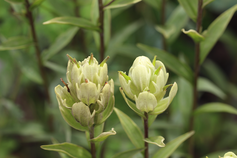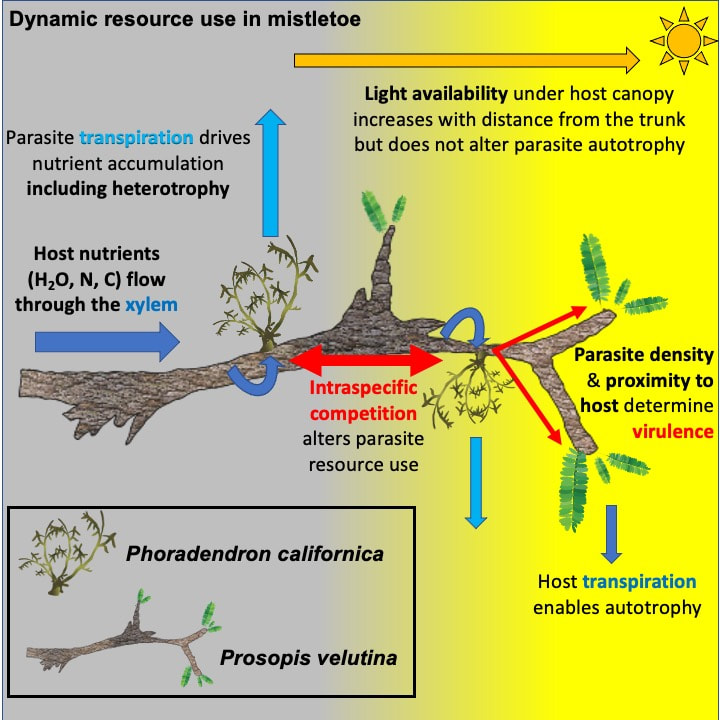Plant Parasitism
Plant parasites evolved independently numerous times across flowering plants but the drivers of this life history remain less understood. The lab is developing some new approaches to ask old questions on what leads a plant to be parasitic and how do these acts play out in our rapidly changing climate.
|
In a examination of how warming climate may alter plant-parasite interactions, we found root parasitism increased and also reduced any benefit to the host of warming temperatures. Thus while there were direct benefits to soil warming, there were indirect effects that altered the strength of parasitism to reduce any benefits to the host. This paints a complex picture of how environmental context determines individual species persistence and interactions with parasites.
See Rafferty et al. 2019 PLoS One |
|
We also found that obligate stem hemiparasites show trophic flexibility by switching their carbon uptake between photosynthesis and heterotrophic carbon gain through the xylem. Interestingly, competition for resources, including carbon, determines virulence and this trophic plasticity.
See Nabity et al 2021 Current Biology |


